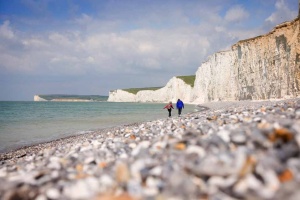Credit crisis fuels boom in UK staycations

The growing shift towards the staycation in the UK has been confirmed by VisitEngland, which reported a 14 percent hike in Britons holidaying in England in the first six months of this year.
The new figures showed cash-strapped Brits took 2.6 million more trips UK year-on-year, and 9.1 million extra nights in the UK. Meanwhile outbound travel took a 17 percent hit in the same period.
James Berresford, chief executive of VisitEngland, said: “England is back in fashion as Brits are rediscovering the diversity and appeal of the English holiday.”
“It’s a trend that we’ve seen developing over the course of the last few years and one which we intend to nurture with the help of the tourism industry.”
However the amount spent on trips of all kinds fell 1% in the first half of this year.
‘Clearly there are businesses out there still suffering, particularly those in the conference and events market so we are certainly not out of the woods,’ said Mr Berresford.
ADVERTISEMENT
VisitEngland also published the results of a recent focus group, showing a “lost generation” of younger people who admitted to being embarrassed because of the lack of knowledge of their own country.
Staycationing looks set to continue next year as UK tour operator Hoseasons reported that its advanced bookings for 2010 were up by 61 per cent.
Hoseasons chief executive Richard Carrick said: “Without doubt UK holidays have always been popular, but in the last 10 years it has been a challenge for companies to adapt to a weak euro, low-cost flights and last-minute booking trends. This year has given us the chance to turn the tide in favour of British breaks.”
Bournemouth is the most popular staycation destination, according to results of a separate study of 66 UK tourism hotspots by Virgin Money Travel Insurance.
Other south coast towns that scored well included Brighton and Portsmouth in second and third, Scarborough fourth and London fifth. But Loch Ness, home of the Loch Ness monster, came last, partly because of the terrible Scottish weather.
This summer, many plans for UK holidays were washed out by poor weather in August and July, which are expected to dampen figures for the second half of the year.
However September was one of the driest and warmest in 100 years, leading to a surge in last-minute bookings for coastal resorts.

